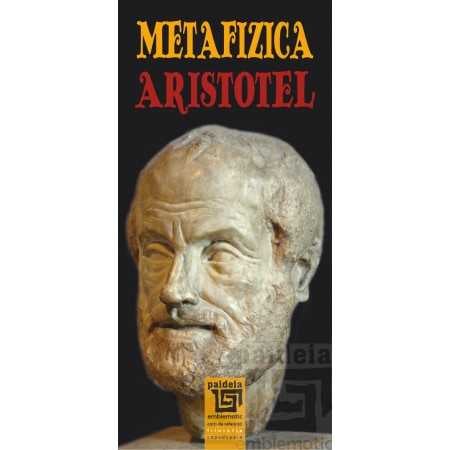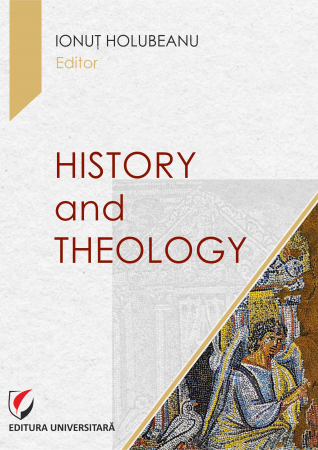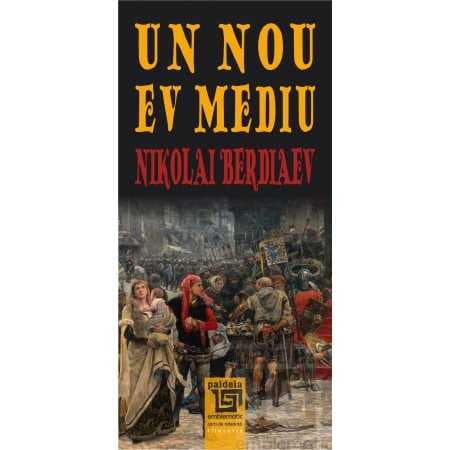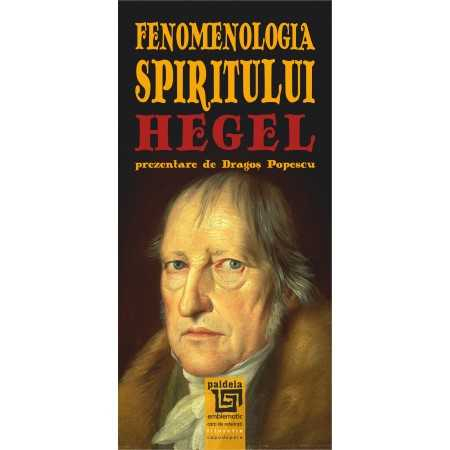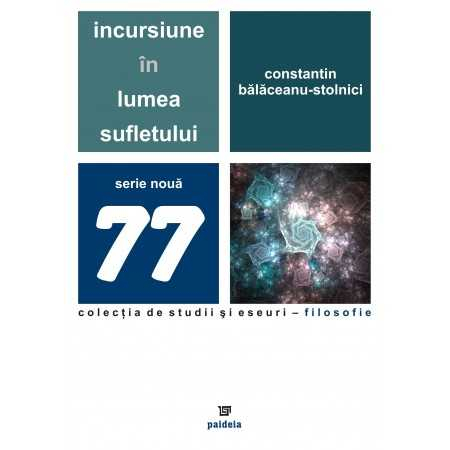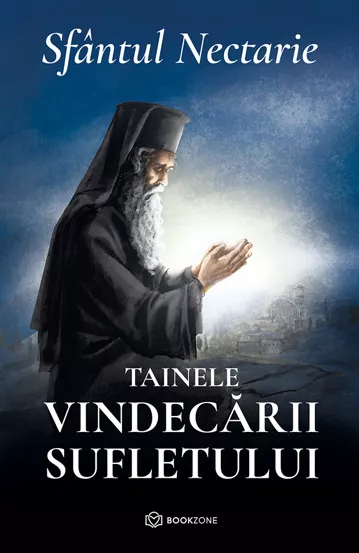Manuscript proposals: [email protected] / 0745 204 115 //// Tracking orders Individuals / Sales: 0745 200 357 / Orders Legal entities: 0721 722 783
Publisher: Editura Universitară
Author: Florin Manole
Edition: I
Pages: 122
Publisher year: 2022
ISBN: 978-606-28-1293-5
DOI: 10.5682/9786062812935
Product Code:
9786062812935
Do you need help?
0745 200 357
- Description
- Download (1)
- Authors
- Content
- More details
- Reviews (0)
"Whoever thinks that the difference between religious and believer is a game will now find out."
"...Florin Manole's volume is such a retort, detached and distinguished, to all the rush of nonsense to kill the words about God by softening the words about religion, religious, sacredness without God. He proves - once again since Saint Nicolae Cabasila - that the laity can rethink a series of contents in order to increase the acuity of the confession in Christ of the thinking Church"
Priest Constantin Necula
"The polemical impulse from which Florin Manole's text is fed calls for the restoration of the lost original discernment of the Christian, who was dramatically aware that he is responsible for polarly different bodily realities: the fleshly body, marked by Sin, and the spiritual body of the Resurrected, free from Sin and arvuna, as Paul says, of our general Resurrection at the end of time.
Consciousness of the fact that in any valid theological interpretation being a Christian does not mean being religious..."
Ioan Buduca
"...Florin Manole's volume is such a retort, detached and distinguished, to all the rush of nonsense to kill the words about God by softening the words about religion, religious, sacredness without God. He proves - once again since Saint Nicolae Cabasila - that the laity can rethink a series of contents in order to increase the acuity of the confession in Christ of the thinking Church"
Priest Constantin Necula
"The polemical impulse from which Florin Manole's text is fed calls for the restoration of the lost original discernment of the Christian, who was dramatically aware that he is responsible for polarly different bodily realities: the fleshly body, marked by Sin, and the spiritual body of the Resurrected, free from Sin and arvuna, as Paul says, of our general Resurrection at the end of time.
Consciousness of the fact that in any valid theological interpretation being a Christian does not mean being religious..."
Ioan Buduca
-
To be religious and to be Christian. A spiritual perspective
Download
FLORIN MANOLE
A word before Father Constantin Necula / 9
Introduction
Reason / 13
Purpose / 21
Chapter I. Delimitation, religious act
1. First, the profane becomes sacred through delimitation / 28
2. Then the profane becomes sacred through obedience / 31
3. Thus, man becomes religious / 34
4. Therefore, waiting / 36
Chapter II. The incarnation of the sacred, the end of religion
1. The Incarnation of the Lord / 62
2. The impossible: the profane becomes, by itself, sacred / 45
3. "The sacred and the profane" / 49
4. History / 59
Chapter III. Christian or religious, Holy Spirit or spirit of religious beliefs and ideas
1. Being religious does not mean being a Christian / 62
2. The madness of Christianity / 67
3. Bad words / 72
4. The incredible / 73
5. To be faithful to the incredible / 75
Chapter IV. A confusion that suffocates the soul of the baptized in Christ
1. Catechesis versus religion class / 81
2. The Schmemann / 88 argument
3. Yannaras argument / 99
Conclusions / 108
Ioan Buduca: How we relate to the facts / 114
Bibliography / 120
Introduction
Reason / 13
Purpose / 21
Chapter I. Delimitation, religious act
1. First, the profane becomes sacred through delimitation / 28
2. Then the profane becomes sacred through obedience / 31
3. Thus, man becomes religious / 34
4. Therefore, waiting / 36
Chapter II. The incarnation of the sacred, the end of religion
1. The Incarnation of the Lord / 62
2. The impossible: the profane becomes, by itself, sacred / 45
3. "The sacred and the profane" / 49
4. History / 59
Chapter III. Christian or religious, Holy Spirit or spirit of religious beliefs and ideas
1. Being religious does not mean being a Christian / 62
2. The madness of Christianity / 67
3. Bad words / 72
4. The incredible / 73
5. To be faithful to the incredible / 75
Chapter IV. A confusion that suffocates the soul of the baptized in Christ
1. Catechesis versus religion class / 81
2. The Schmemann / 88 argument
3. Yannaras argument / 99
Conclusions / 108
Ioan Buduca: How we relate to the facts / 114
Bibliography / 120
Whoever thinks that the difference between religious and believer is a game will now find out. In the quiet of a writing like a radvan of peace. Florin Manole offers us an alternative to healing from the religious syncretism of the time through quiet re-Christianization. A recapitulation of the Baptism contents of the words that define our existence, therefore faith. Sensitive effort, marked by humility, which seems extremely important to me. Avoiding slipping into slogans - the grave disease of today's civilized world - as well as mystifications of faith, I believe that the author is in the happy fulfillment of the words of Saint Basil the Great: "We must not be like those who are strangers to the Lord's teaching: we must imitate God and his saints, according to the power given to us by Him" (Moral Rules, 27.1). Or these words are closer to the method assumed by the enthusiastic researcher of the foundations of life in Christ, which we discover in the meditations of this book: "We must not be easily attracted, without examining things, by those who simulate the truth, but we must to recognize each one according to the distinctive characteristics that the Holy Scripture indicates to us" (Moral Rules, 28.1). Discovering in Resurrection the source of healing from the snobbery of cheap religiosity, the author offers us a good evaluation of the lines of force that distinguish faith from faithfulness, from religiosity and worldly fanaticism. The way he constructs his argument - in syllogisms courted by meditation and divine grace - reminds me of the old writing, gentle and apologetic at the same time, of the boyars who devoted themselves to writing and, in this way, Florin Manole is related to the sons of Neagoe Basarab even more so the fighter Nicolae Spataru Milescu. Because it is a luminous nobleman in his verb that argues, grows, explains in scope and depth.
When he calls his work Eranistes, the Beggar, Blessed Theodoret of Cyrus argues his writing like this: "Books - I gave the name Eranistes (the Collector, the beggar, the collector of small things, we could call him in profane terms, n.NC) or Polymorpho (simply, n.NC), because they form this varied and multiform way of thinking by collecting the damnable dogmas of many unseemly people. The statement that only the Lord Christ is God belongs to Simon, Cedon, Marcion and others who are part of this repulsive group. The idea of confessing the birth of Fecioara, but saying that this was done as a simple passing and that God the Word did not take anything from Fecioara, they took it from the fairy tales of Valentin and Bardesan and those close to them. The idea of declaring that the divinity and the humanity of the Lord Christ constitute a single nature was eradicated from Apollinaris's ramblings. And again, the fact of attributing the passion to the divinity of Christ robbed it of the blasphemies of Arius and Eunomia. Therefore, this heresy resembles garments sewn together by some beggars from several rags without skill. Here, then, for what reason I gave this book the name of Eranistes or Polymorphos (the beggar or the one who changes his form)" (Fericitul Teodoret al Cirului, Eranistes the Beggar, Ed. Doxologia, Iasi, 2021, p. 36). And Florin Manole's volume is such a response, detached and distinguished, to all the haste of the nonsense to kill the words about God by softening the words about religion, religious, sacredness without God. He proves - as many times as Saint Nicolae Cabasila - that the laity can rethink a series of contents to increase the acuity of the confession in Christ of the thinking Church. The harvest is many, but the workers are few (Matthew 9.37 38) and that is why anyone who joins the search for Eternal Life fulfills the desire of the Spirit who is life and peace (Romans 8.5 6). I felt during the reading and re-reading of the text proposed by the poet-philosopher as a metaphor for the tranquility in which he invests - lucid and courageous - his thoughts remind me of the words of the Holy Apostle Paul, the first of those careful not to religiously idolize what life in faith is: "Also, the Spirit comes to help our weakness, because we do not know how to pray as we should, but the Spirit Himself prays for us with unspeakable sighs" (Romans 8.26). A book that contains such a sigh can only be a joy to read.
Priest Constantin Necula
When he calls his work Eranistes, the Beggar, Blessed Theodoret of Cyrus argues his writing like this: "Books - I gave the name Eranistes (the Collector, the beggar, the collector of small things, we could call him in profane terms, n.NC) or Polymorpho (simply, n.NC), because they form this varied and multiform way of thinking by collecting the damnable dogmas of many unseemly people. The statement that only the Lord Christ is God belongs to Simon, Cedon, Marcion and others who are part of this repulsive group. The idea of confessing the birth of Fecioara, but saying that this was done as a simple passing and that God the Word did not take anything from Fecioara, they took it from the fairy tales of Valentin and Bardesan and those close to them. The idea of declaring that the divinity and the humanity of the Lord Christ constitute a single nature was eradicated from Apollinaris's ramblings. And again, the fact of attributing the passion to the divinity of Christ robbed it of the blasphemies of Arius and Eunomia. Therefore, this heresy resembles garments sewn together by some beggars from several rags without skill. Here, then, for what reason I gave this book the name of Eranistes or Polymorphos (the beggar or the one who changes his form)" (Fericitul Teodoret al Cirului, Eranistes the Beggar, Ed. Doxologia, Iasi, 2021, p. 36). And Florin Manole's volume is such a response, detached and distinguished, to all the haste of the nonsense to kill the words about God by softening the words about religion, religious, sacredness without God. He proves - as many times as Saint Nicolae Cabasila - that the laity can rethink a series of contents to increase the acuity of the confession in Christ of the thinking Church. The harvest is many, but the workers are few (Matthew 9.37 38) and that is why anyone who joins the search for Eternal Life fulfills the desire of the Spirit who is life and peace (Romans 8.5 6). I felt during the reading and re-reading of the text proposed by the poet-philosopher as a metaphor for the tranquility in which he invests - lucid and courageous - his thoughts remind me of the words of the Holy Apostle Paul, the first of those careful not to religiously idolize what life in faith is: "Also, the Spirit comes to help our weakness, because we do not know how to pray as we should, but the Spirit Himself prays for us with unspeakable sighs" (Romans 8.26). A book that contains such a sigh can only be a joy to read.
Priest Constantin Necula
If you want to express your opinion about this product you can add a review.
write a review

6359.png)
![To be religious and to be Christian. A spiritual perspective - Florin Manole [1] To be religious and to be Christian. A spiritual perspective - Florin Manole [1]](https://gomagcdn.ro/domains/editurauniversitara.ro/files/product/large/a-fi-religios-si-a-fi-crestin-o-perspectiva-duhovniceasca-634757.jpg)
